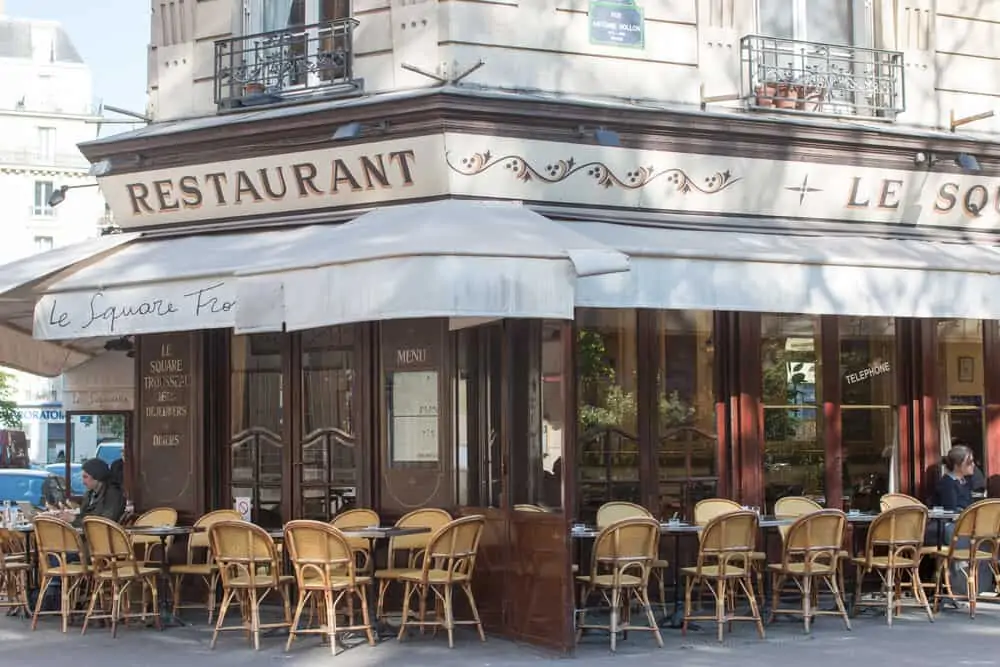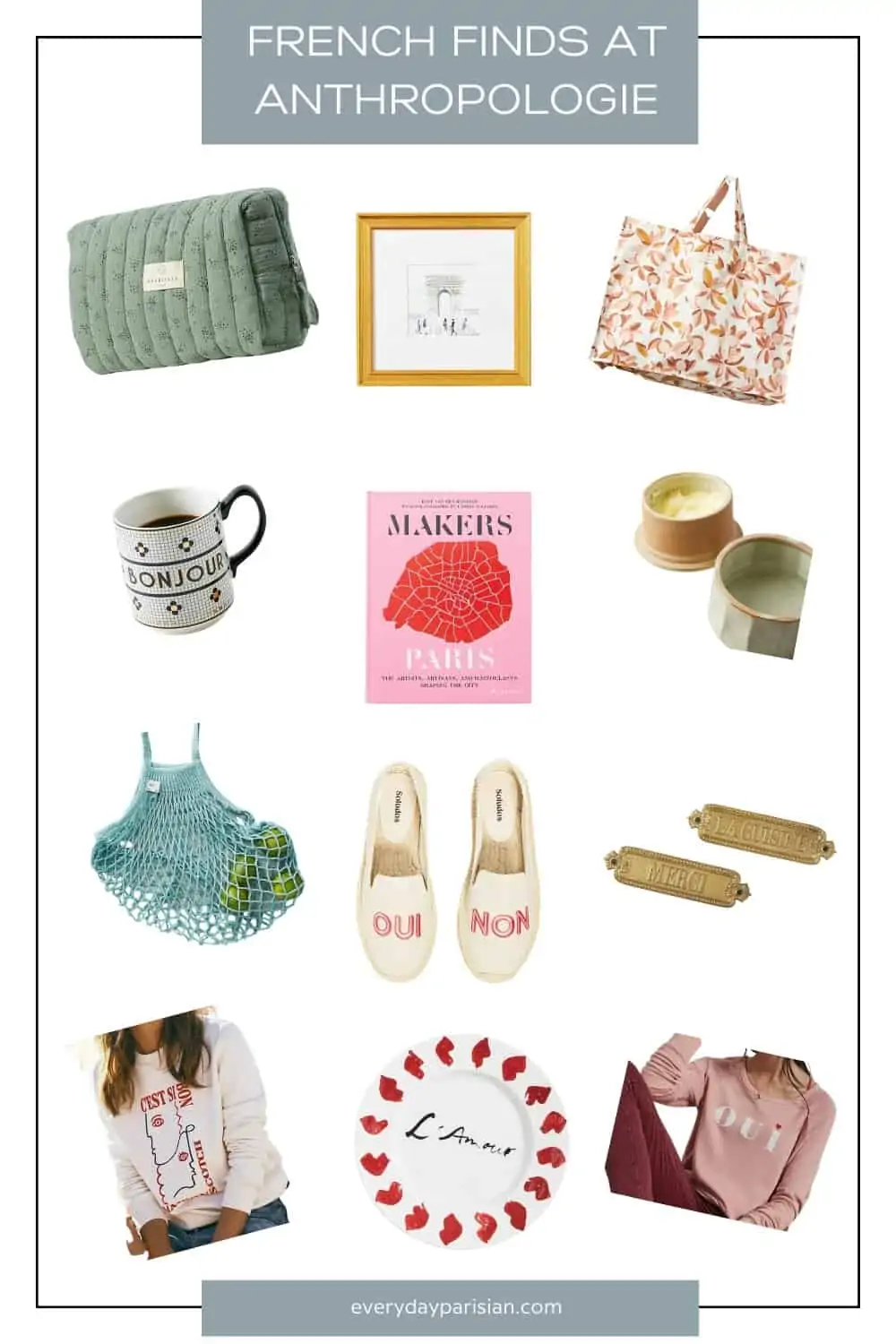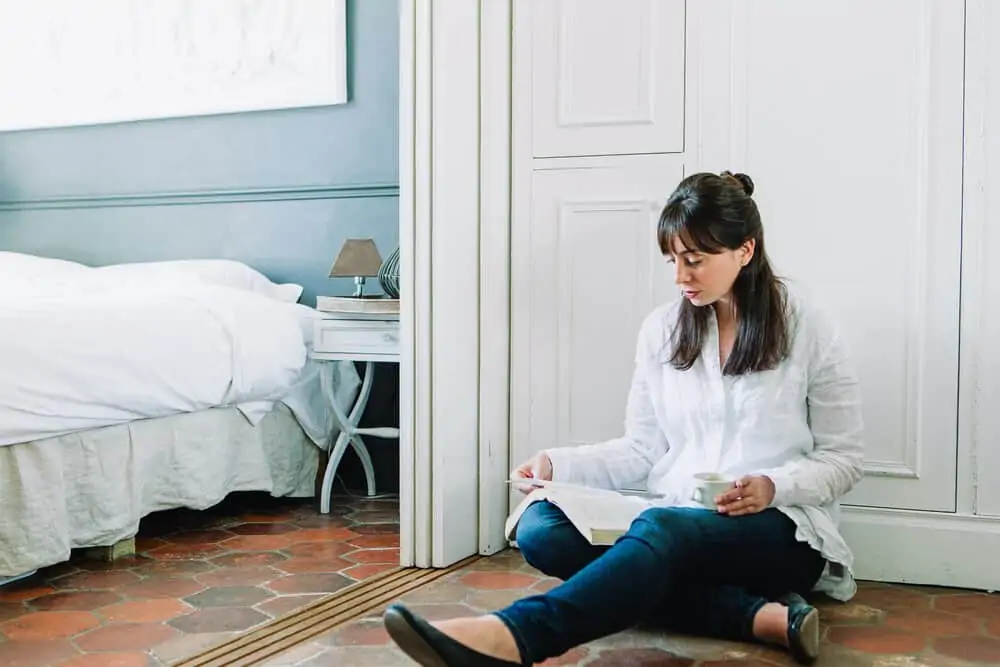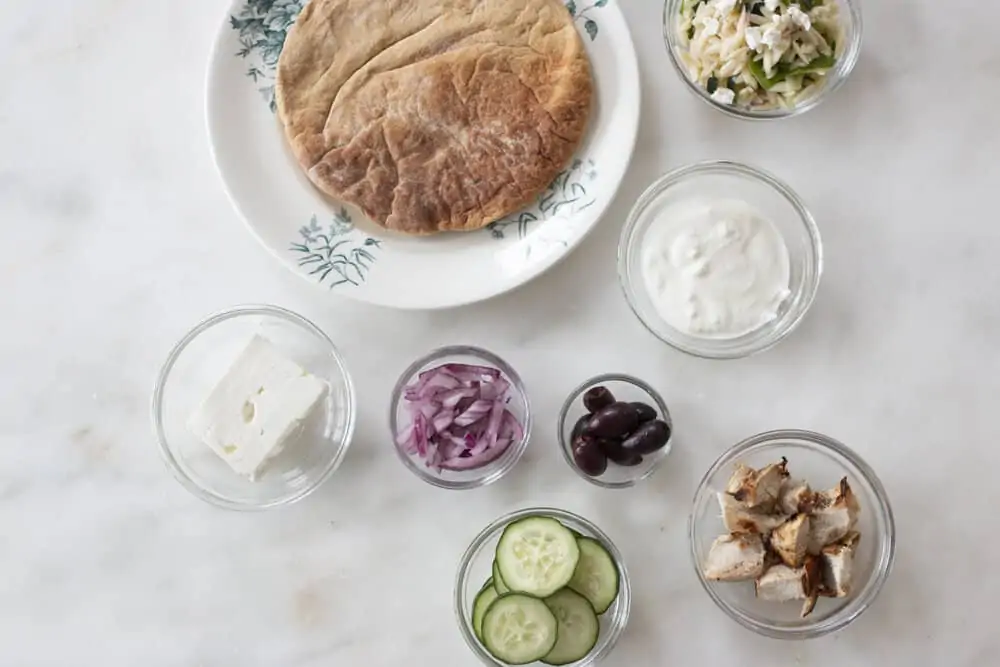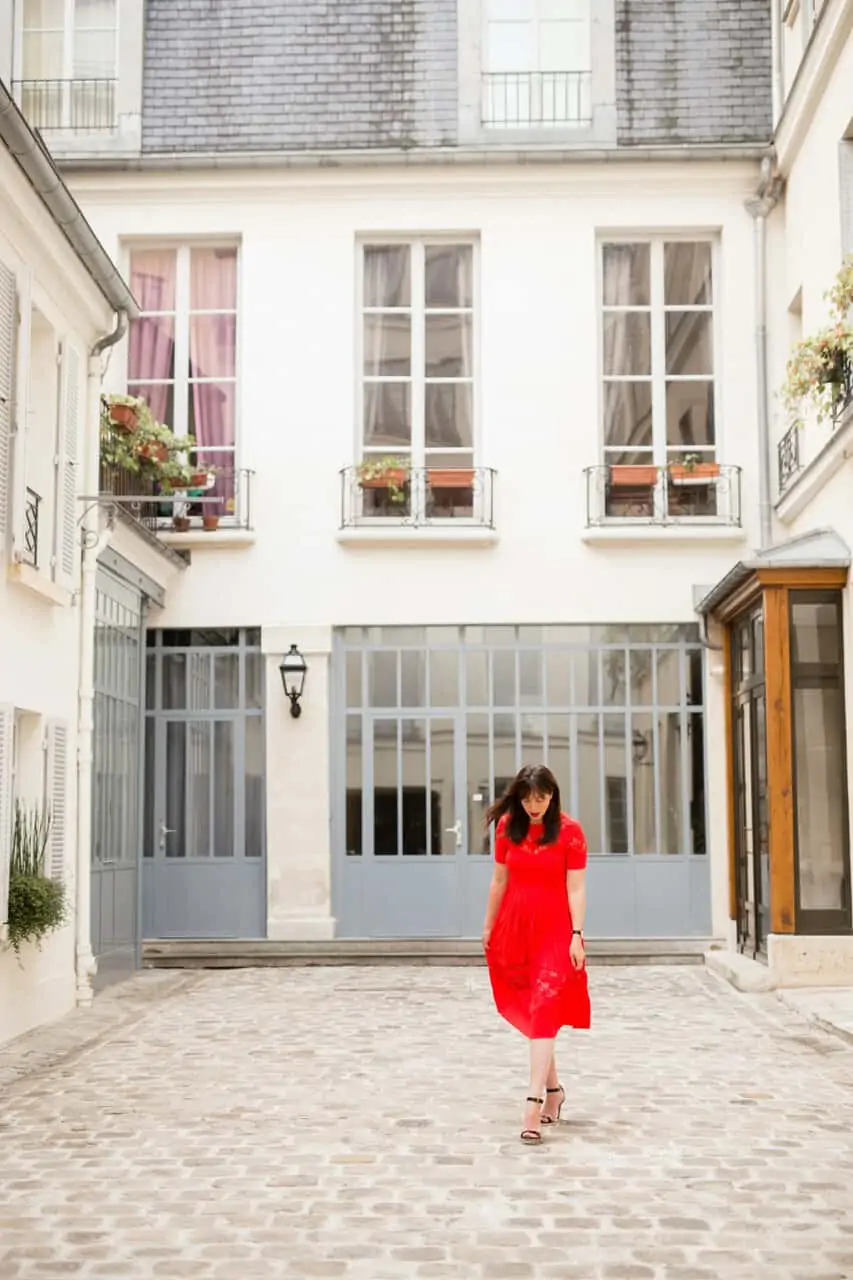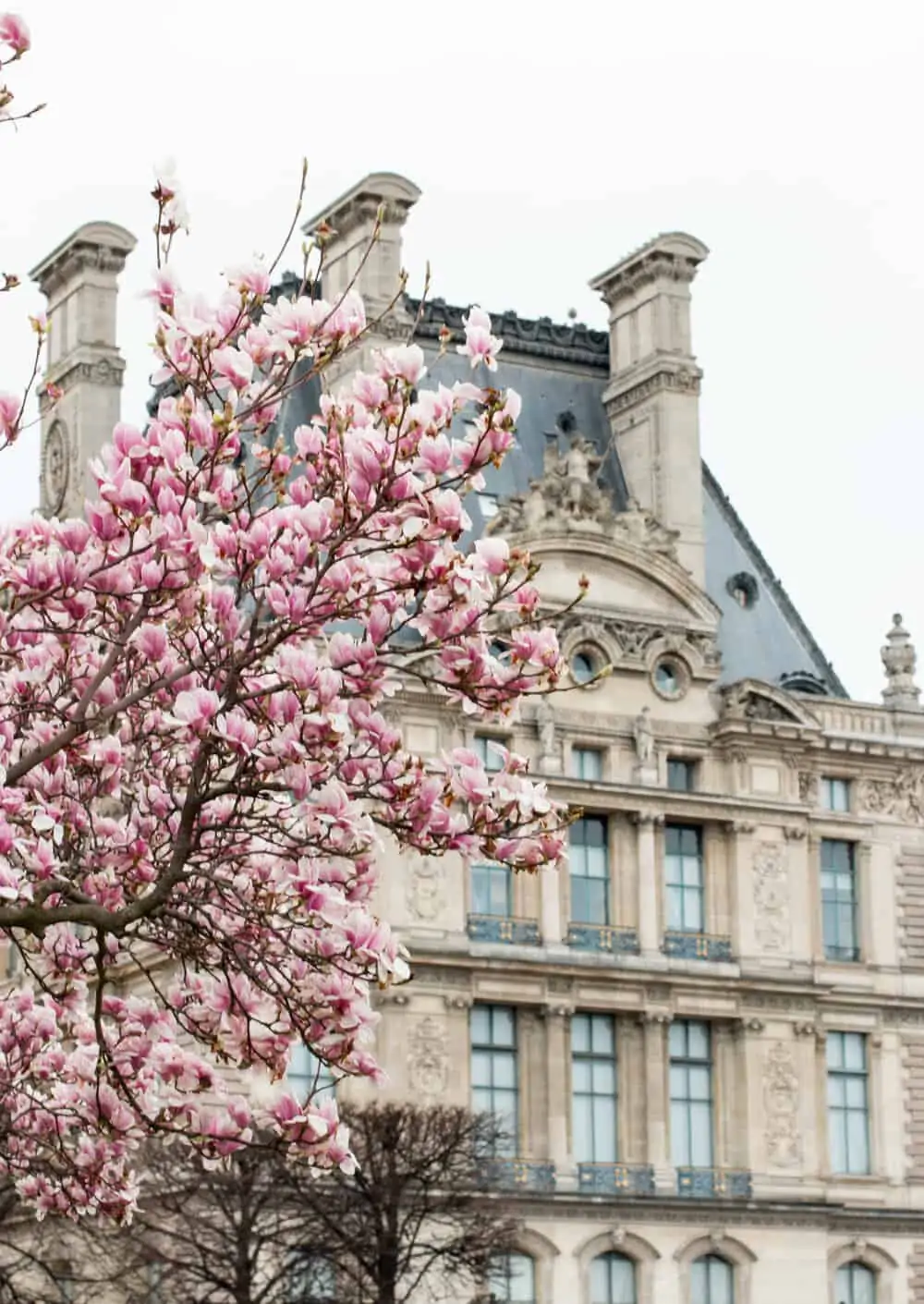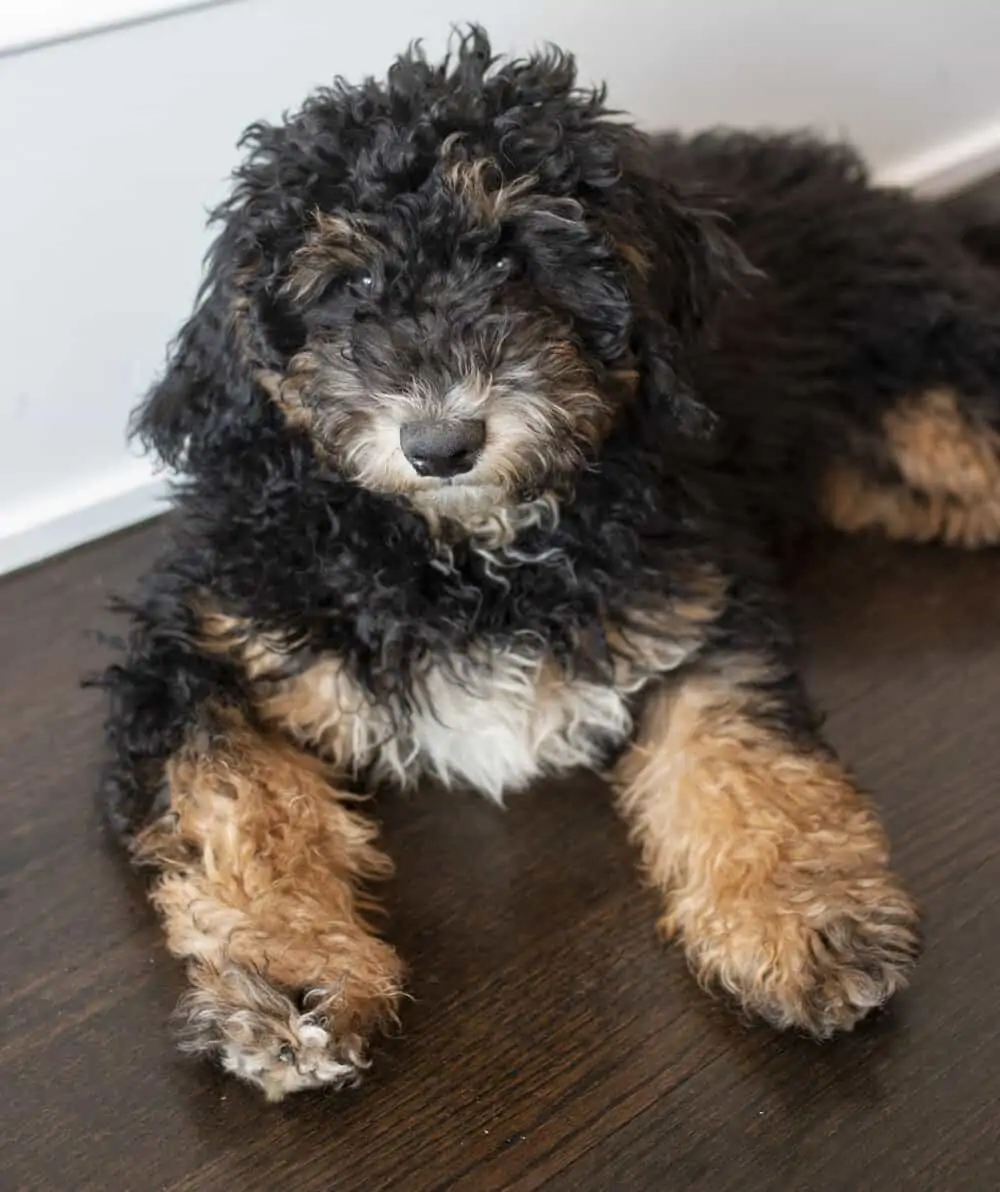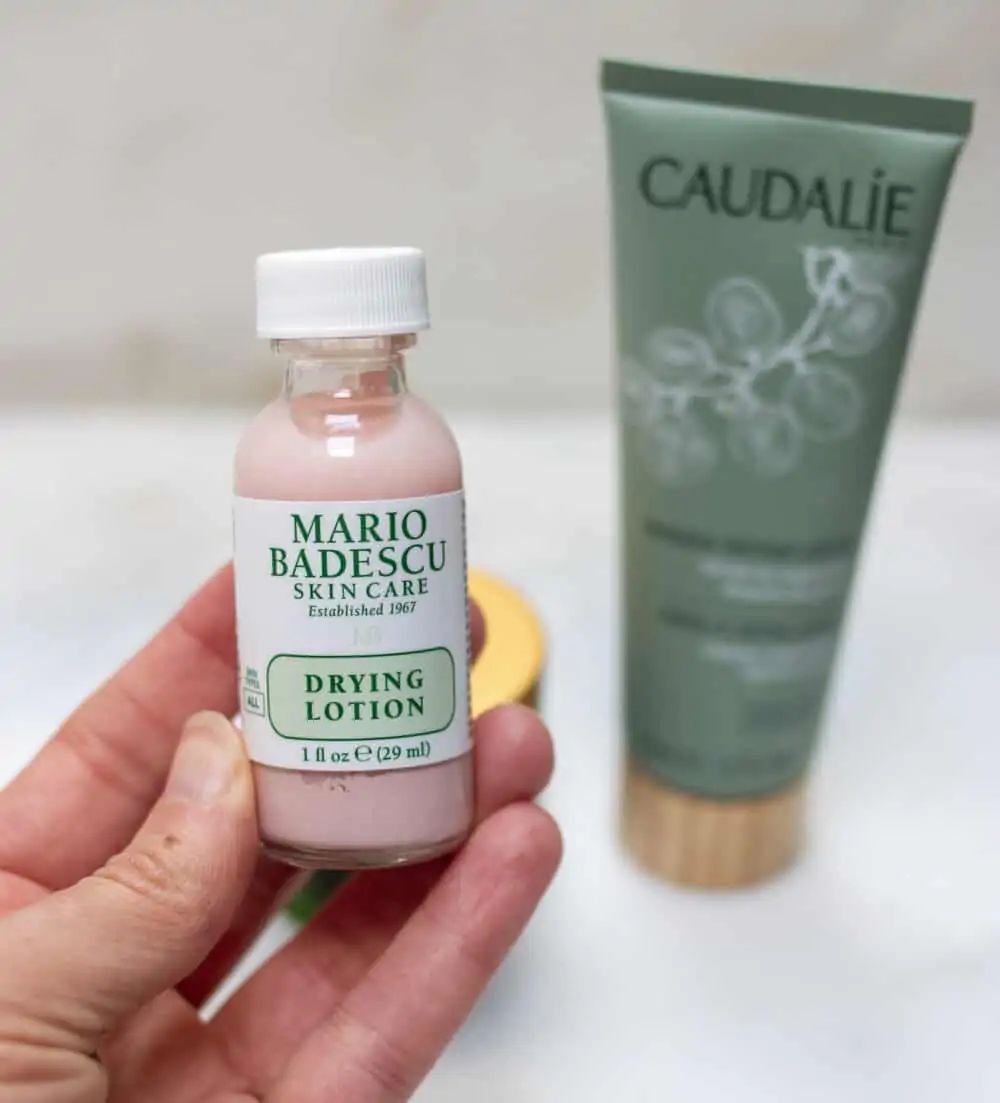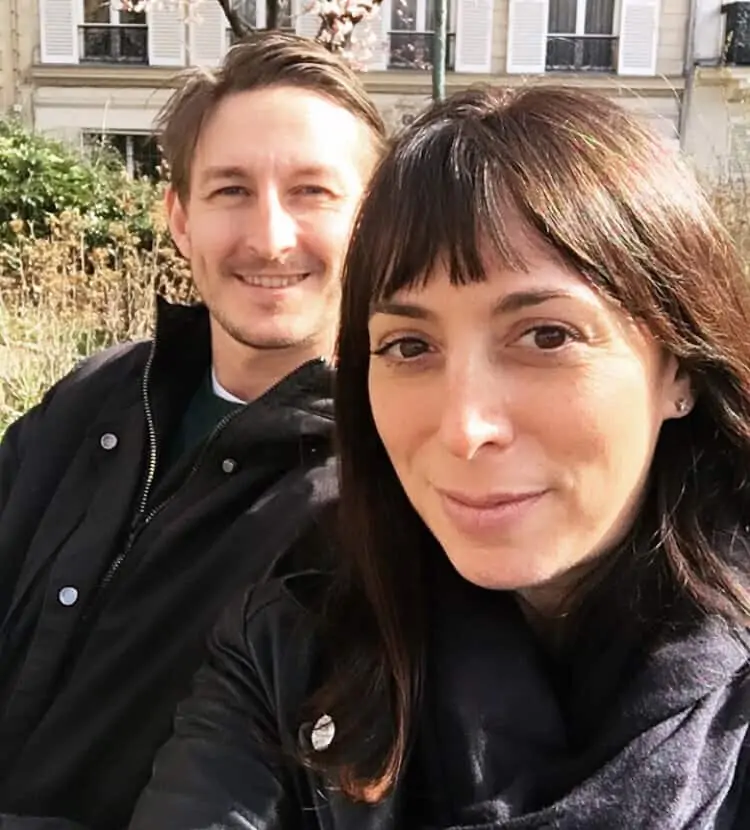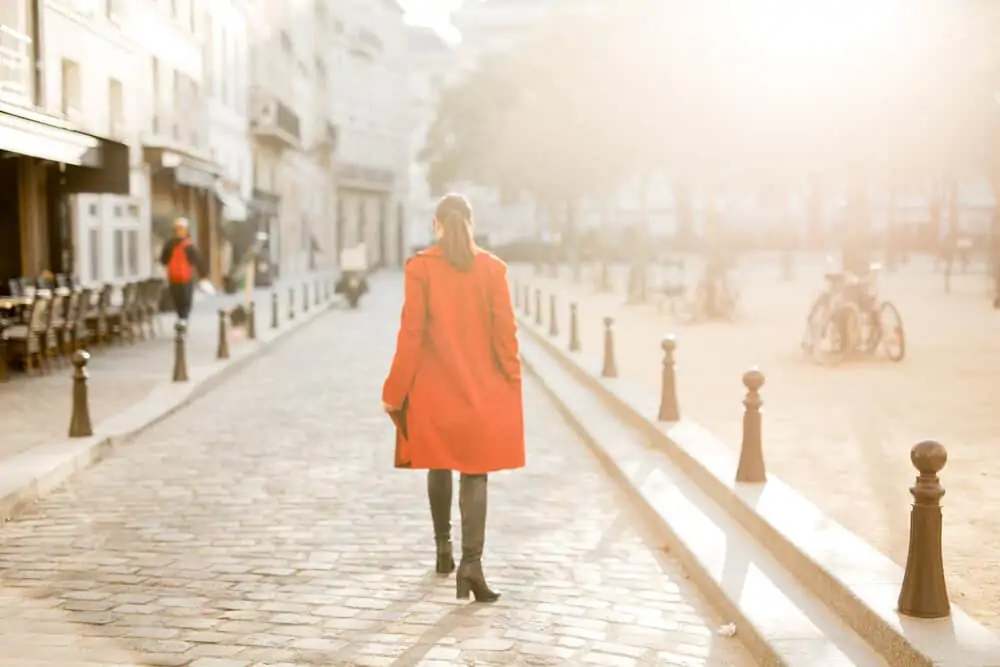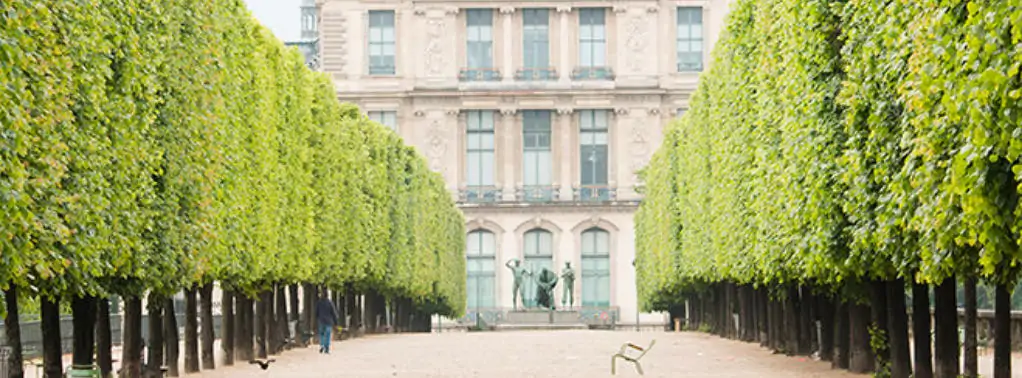Essential Café Etiquette for Paris
By Jenny Hughes
Paris Essential Café Etiquette to Know
Parisian Café Etiquette
Imagine yourself in a French café: seated at a table on the terrasse, engrossed in a book or people-watching, with a glass of wine or tasse of coffee in hand. It’s an easy scene to visualize, but one that requires a bit of French café etiquette to make a reality. I hope you find this Paris essential café etiquette helpful for your trip to Paris.
France has its own language, cultural customs, and unspoken code of etiquette. And while for the French it’s generational knowledge, for visitors to the country it’s something they have to learn if they want to blend in with the locals or just be polite.
To help you enjoy the lovely French ritual of sitting at a cafe and watching the afternoon go by with a drink in hand, here’s the French cafe etiquette you should know.
For ideas on where to eat and drink in Paris, you can check out this blog post.
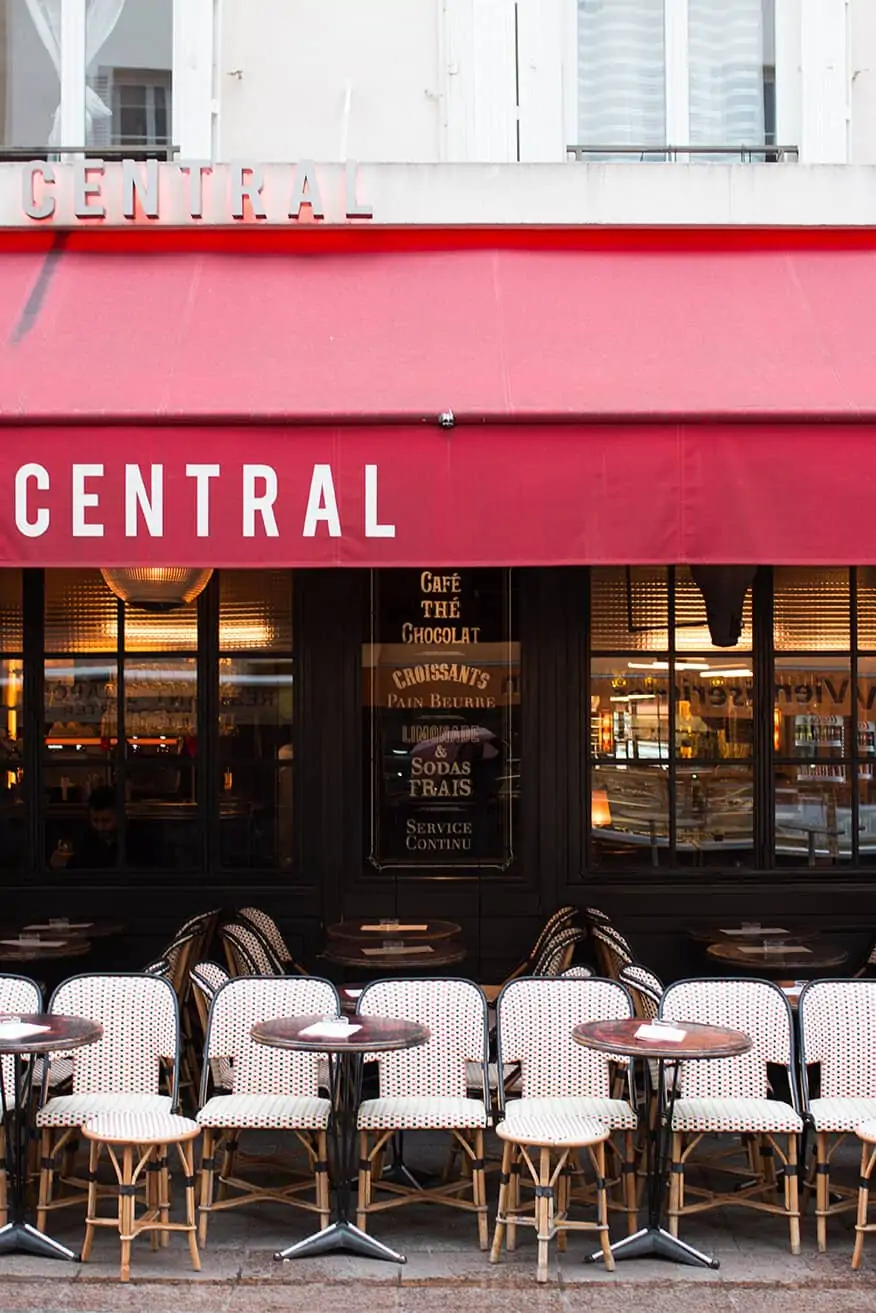
Before you arrive
The first thing to do before you ever set foot in a café is to drop your preconceptions about waiters.
Tourists in France commonly perceive their waiters as rude and the relationship quickly becoes hostile. Don’t make this mistake. Your French waiter may never crack a smile, give you 100% of their attention, or ask how you’re doing, but that doesn’t mean they dislike you or are insulting you. They’re busy and focused on doing their jobs — that’s why you’ll hear the phrase “j’arrive!” (I’m coming) often during your café experience. Using it means they haven’t forgotten you, and they’ll attend to you shortly.
So drop your preconceptions. If you enter a café without the expectation of smiling waiters, you won’t be disappointed or insulted when that doesn’t happen.
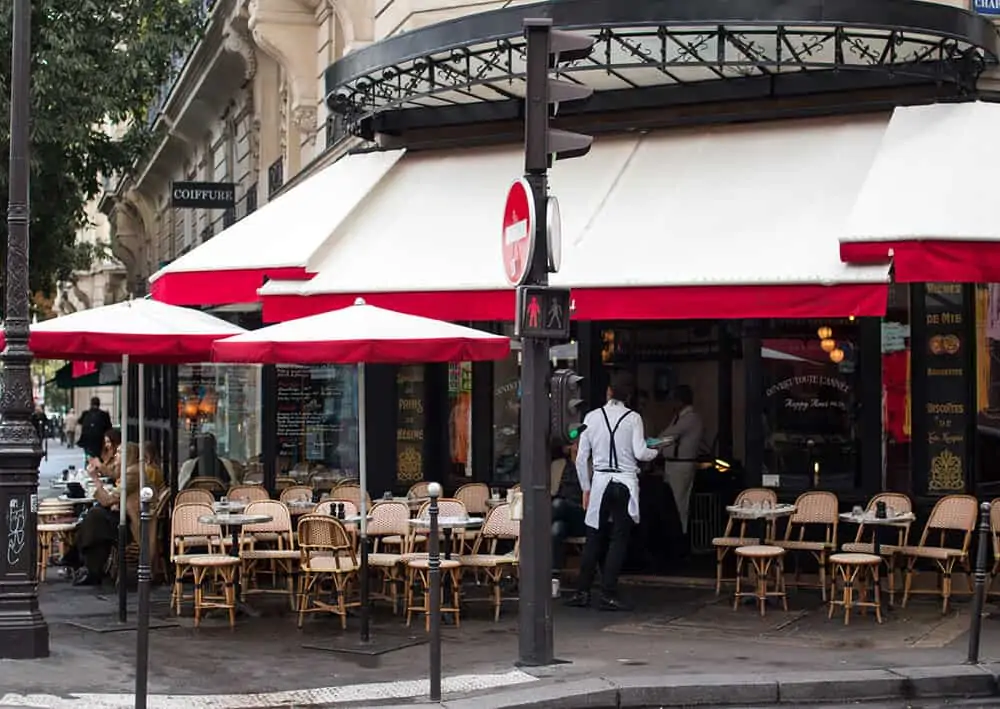
When you arrive
When you arrive at a café for a glass of wine or cup of coffee, you’ll have to decide if you want to sit inside (en salle), at the bar (au bar), or outside (en terrasse). Either way, you can just take a seat; there’s no need to wait for a waiter/bartender to seat you.
If a waiter/bartender spots you before you sit down, they’ll greet you and tell you to sit where you want: “Bonjour/bonsoir madame/monsieur/mademoiselle, installez-vous” (hello/good evening ma’am/sir/miss, sit where you want). Always greet them back: “Bonjour madame/monsieur.” (Note: It’s safer to just use “madame” for all women. No one will be offended by “madame,” but some women may be offended by “mademoiselle.”)
Ordering in French
The indoor exception: If there’s a hostess stand at the entrance, that should be your first stop. You’ll exchange hello’s and be asked, “Vous préférez vous installer en salle ou en terrasse?” (do you prefer to be inside or outside). Responding “en salle” or “en terrasse” will suffice. You may also be asked, “Pour manger ou prendre un verre?” (to eat or have a drink). Respond by saying, “prendre un verre.”
The outdoor exception: If it’s really busy, the waiter will probably seat you. They’ll ask, “Vous êtes combien?” (how many are in your party). Respond by saying, “on est ____” (there are ____ of us). If it’s just you, say “un” (one). You may end up sharing a table with other people — don’t worry, you’re not obligated to speak with your neighbor.
Once seated
If you sat down without being greeted by a waiter/bartender, you don’t need to alert anyone of your presence — they’ll notice you. You’ll be greeted at your table or the bar with the same, “Bonjour/bonsoir madame/monsieur/mademoiselle,” which you should repeat back. The waiter/bartender will set down menus and cardboard coasters, then leave.
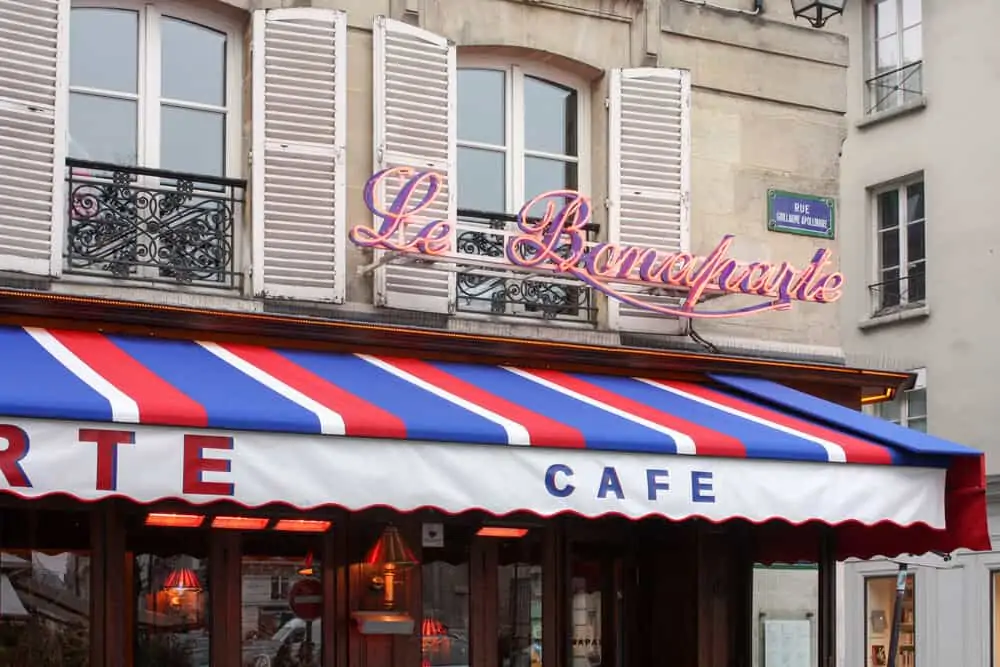
How to Order at a Café
When the waiter/bartender returns, they’ll ask you something like, “Vous avez choisi?” (have you decided) or “Qu’est-ce que je vous sers?” (what can I get you). Try to have your order ready — it makes their job easier! Say, “Oui, je vais prendre ___” (yes, I’ll have ___ ). For more time, say, “Non, je n’ai pas encore choisi” (no, I haven’t decided yet). If you’re waiting for a friend to arrive, say, “Non, j’attends un(e) ami(e)” (no, I’m waiting for a friend).
The waiter/bartender will probably repeat your order back to you, take the menus, and leave.
When your drink arrives
When the waiter/bartender brings you your drink(s), make sure to say, “Merci monsieur/madame.” Manners go a long way in France!
This is also the time to get the wifi password if you need it: “C’est quoi le mot de passe pour le wifi?” (what’s the wifi password). It’s worth checking the back of menu first, though, as wifi passwords are often listed there.
Sitting & enjoying your drink
Chatting with a friend, reading, journaling, or people-watching — it’s your choice how you want to spend your time. If you’re seated at the bar and see a stack of newspapers, feel free to take a section to peruse while sipping your coffee or wine.
One thing you shouldn’t do is open up your laptop or tablet. For that, visit one of the coffee shops on the new Paris coffee scene, like Ten Belles,Fragments, or Café Lomi. Another thing not to do is take your drink from the bar to a table (unless you’ve been waiting for a table and the hostess moves you). Hot drinks are often cheaper at the bar than if you’re seated at a table. A sign on the wall usually lists the different prices.
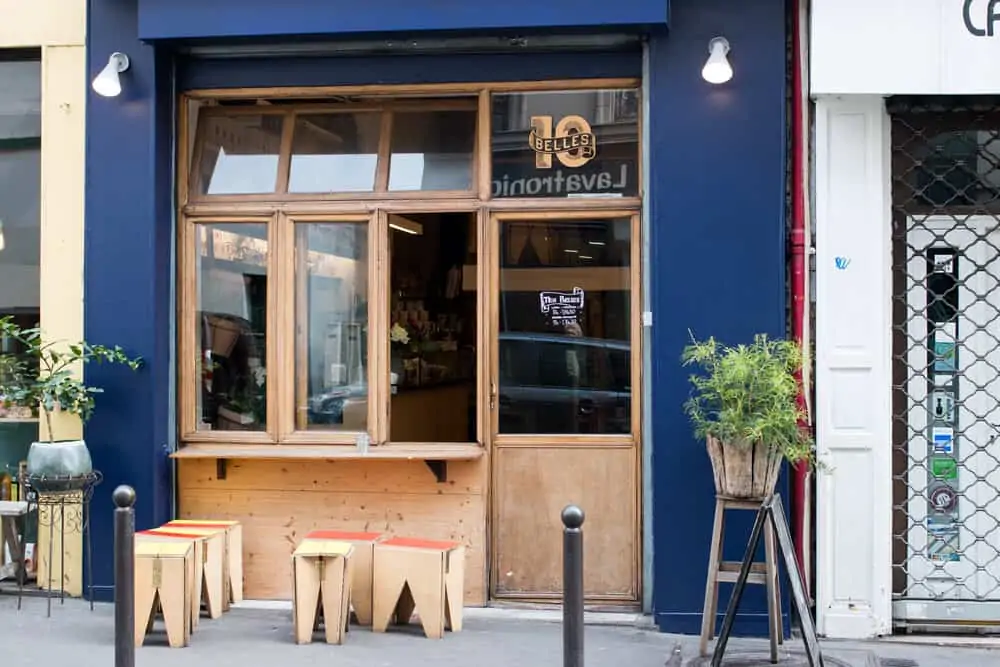
Asking for the check in French
When you want the check, do not under any circumstances yell, “GARÇON!” or wave your credit card around. The best thing to do is make eye contact with the waiter/bartender. Once you have eye contact, if they’re far enough away that they can’t hear you, subtly put your hand up to indicate that you need something; once they’ve reached your table or acknowledged you with a, “Oui madame/monsieur/mademoiselle?”, say, “L’addition, s’il vous plaît” (the check, please).
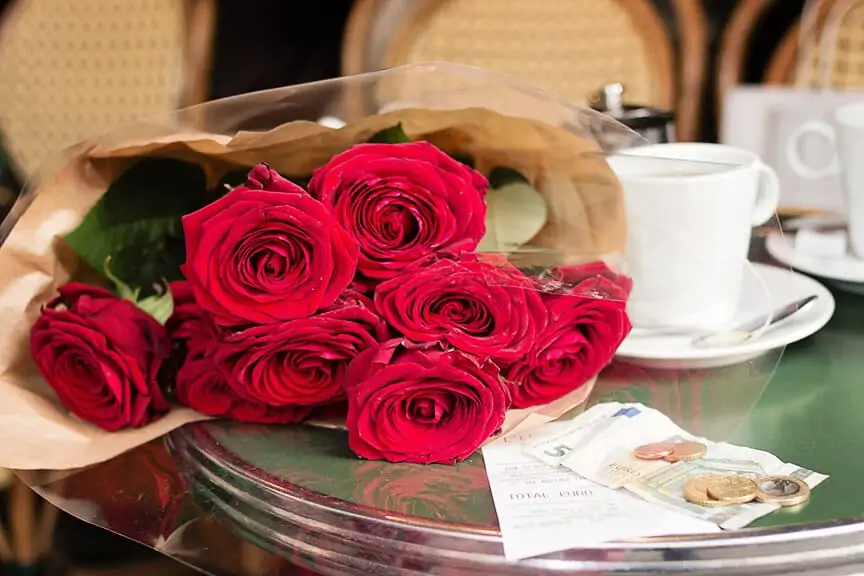
How to Pay the Bill in Paris
The bill will be brought to you on a small tray, and the waiter may ask how everything was: “Ça a été?” Respond, “Oui, c’était bon” (yes, it was good).
When paying, take into consideration that France isn’t nearly as pro-cashless transactions as the US, so it’s best to pay with cash unless your bill is greater than about 15€. (note this may change if we lean towards using less cash with the Coronavirus).
When Paying with a Card
If you do want to pay with card, put your card on the receipt in the tray. The waiter/bartender will notice and return to your table with the card reader. They’ll insert your card, press what they need to press, then hold it in your direction and look away while you enter your pin (or just wait, if it’s a credit card). This is so you’re confident they’re not stealing your card info. With the first printed receipt, the waiter/bartender will say, “Une petite signature” (I need your signature) and hand it to you with a pen. Sign the receipt, hand it back, and they’ll hand you your copy.
If you want to pay with cash, just put your bills and coins on top of the receipt in the tray. Unless you leave the exact amount, the waiter/bartender will return to take the tray, then bring you back your change also on the tray.
Once you’ve finished paying, the waiter/bartender will say, “Merci madame/monsieur/mademoiselle” and possibly “au revoir” (goodbye), depending on if you look like you’re about to leave. Make sure to respond in kind.
Leaving a Parisian Café
Put a few coins on the bar or table (or tray, if it’s still there) as a tip. Fifty centimes or a euro per person is fine. You don’t have to tip, but it is has become commonplace in France and it’s just a generally nice thing to do.
When you’re standing up to go or heading out, if the waiter/bartender is nearby, say “Merci, au revoir monsieur/madame.” Obviously, if the waiter/bartender is far away from you, you shouldn’t yell. You also don’t need to seek the waiter/bartender out to say goodbye. It’s just a courtesy if they’re nearby and within earshot.
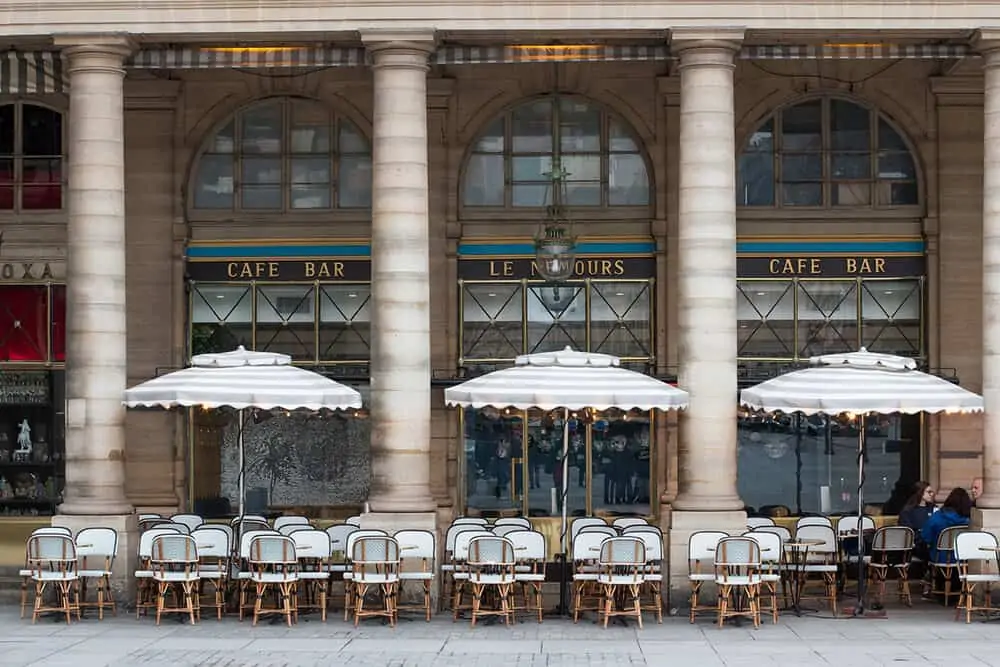
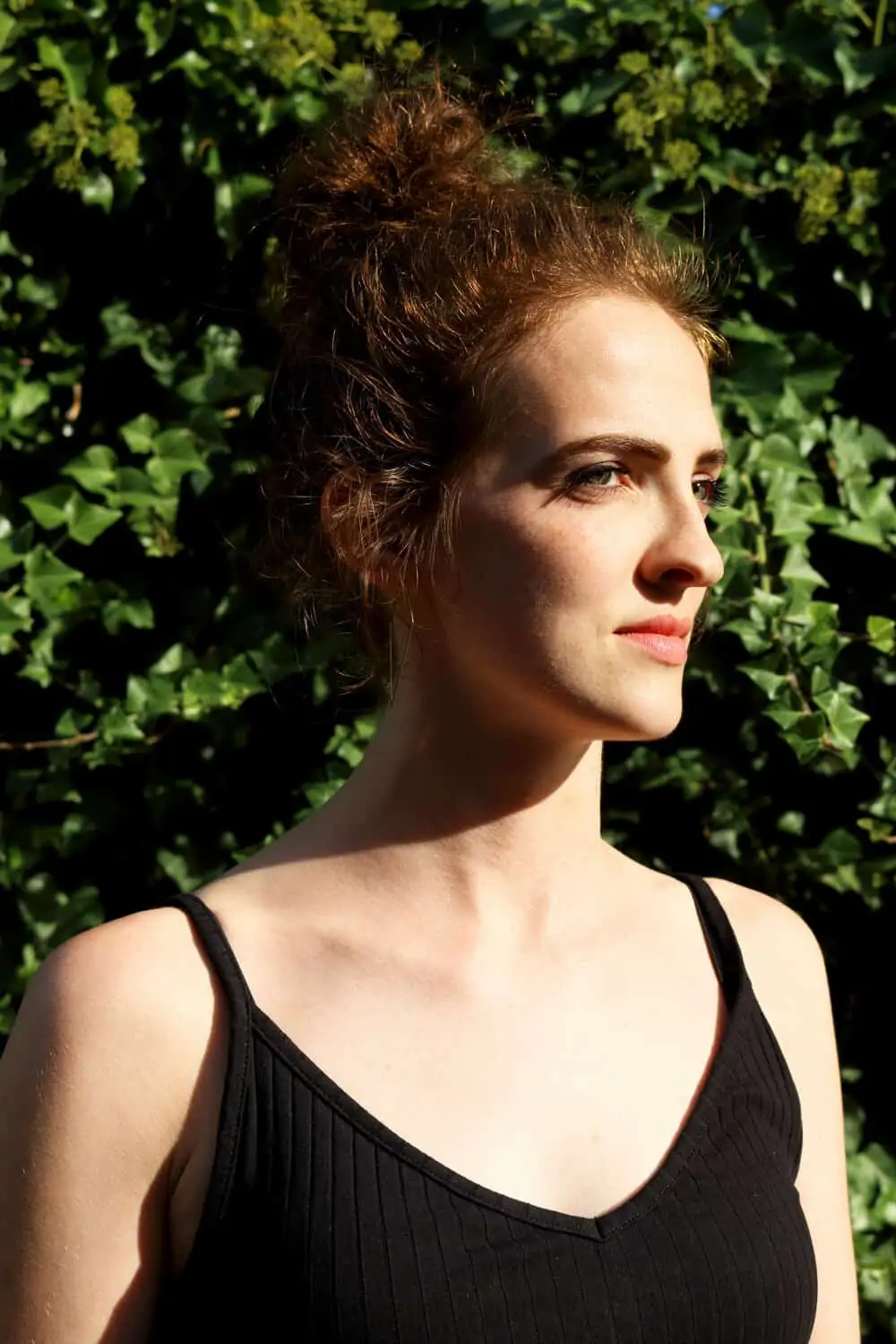
Jenny Hughes
Jenny Hughes is an American with a passion for traveling, crafting, and plants. Though she initially took French in middle school because Spanish was out of the question (she can’t roll her R’s), she quickly fell in love with the language and culture, rough edges and all. In her 9-to-5, she has worked as an editor and digital marketing manager, mostly recently at the website Frenchly. Though her heart is in the Midwest, Jenny currently resides in Connecticut (the fifth state she has lived in) with her boyfriend and way too many plants. Check out her professional website or follow her on Instagram.
